TUESDAY, January 27th, 2009
Message from Kathy Ruiz
Heather White was one of our key speakers this morning. I was very anxious to see her presentation about forced labor and labor conditions in many of today’s big-branded suppliers. She addressed issues of child labor, forced labor, and health and safety violations in the supply chain of big Western companies, such as Nike. You won’t believe the number of forced labor in countries such as China, Thailand, and Malaysia. I’ve just been there, and I can’t imagine anyone living in such conditions. I’m very glad that there are organizations like hers who are trying to help.
This topic was extremely interesting, since she pointed out the many factors which contribute to these main issues. Key players are the suppliers themselves, big companies who try to reduce production costs, consumers who purchase such products, the government, etc. However, it seems that none of these are big contributors to the solution. Instead, it’s bigger organizations, like the UN’s ILO and UNICEF, and companies like Verite and New Standards, who try to get things right.
Ms. White’s simple remarks made a great impression on me. When she showed us the conditions on which some people live, all I could think of was: at what cost can someone live like that? I imagined Tiger Wood’s $22 million dollar contract with Nike, and just asked myself: How can he wear a shirt that supports the lifestyle and condition of its creators, and do nothing about it? It’s like telling his fans “I have millions, that’s all that matters”. I was thinking: what if, instead of taking the money, he tells Nike he’ll represent them for a year as long as they invest that money in improving the working conditions for those people. Then, whenever he wears his shirt, he would be supporting livable working conditions. I’m sure Nike representatives would agree and smile, those thousands of workers would smile, and he would smile in return.
But coming back to reality, why should he be the one doing something about it? Isn’t the company supposed to take care of this and not partner up with businesses with poor labor conditions? Yet again, isn’t the government responsible for making sure decent labor conditions are enforced? This is obviously not working, so then maybe the regular sporting consumer is to blame for wanting to keep low prices and still purchasing such goods? Trying to find who is to blame is an endless, vicious circle, and it feels like the right solution, is no solution at all.
A better question is: Who can change this? For sure, everyone can. Heather is evidence that a change can be made; she is an inspiration and a great example for today’s society. After all “Impossible is nothing,” right? All you have to do, is just do it.
-------------------------------------------------------------------------------------------------
Message from Kerstin Schulte
Internationalization of entrepreneurial small and medium size firms
Nowadays, we will possibly switch companies around eight times during our career ladder, so the chances that we will be working for a small or medium sized company (SME) at some point of our career is high. That is why I decided to attend the lecture “Internationalization of entrepreneurial small and medium size firms” by Andreas Zaby, a professor at the FHW Berlin.
Mr Zaby started his lecture by giving some relevant data background. As many SMEs focus on niche market products, the possibility of export increases. Often products are targeted at a small amount of customers, which are spread around the world. Therefore, 60% of the total revenue of SMEs in Germany comes from exporting activities.
Although China is climbing up the ladder, Germany is still on top of the list of being export leader. Around 60% of these exports are generated by large companies (little in number), the rest is generated by SMEs or small companies (whereas this are the most in number).
Interesting to see is that German mid sized niche product world market leaders are often located within clusters. An example would be the automotive sector which clusters around Stuttgart with Porsche, Mercedes and suppliers of components such as Bosch, while the publishing and banking sector clusters around Frankfurt am Main. Of course, this phenomenon of agglomeration is visible all over the world. Although companies compete globally, there is strong evidence that the location continues to play a crucial role in the competitive advantage a company has (due to the fact that input, such as raw material, capital or knowledge is available which lowers the costs). This role of the location in the competitive advantage is also known as “Globalization Paradox”. Whereas traditionally, a company that internationalizes follows different stages; the more recent approach for a company is to “leapfrog” the different traditional stages and go global right after foundation.
After giving this theoretical input, Mr Zaby presented some examples of born-global game developer firms. These are mainly clustered in Berlin due to the fact that there are leading institutes located for people specialising in game development (Game academies). Therefore, Berlin has a great potential of programming talents that are able to combine the technology with creativity and design elements.
Mr Zaby’s forecasts predict that in future more and more SMEs will go global as the barriers that create reluctance are becoming easier to overcome. Furthermore, the amount of SMEs in general is expected to increase as many large companies shrink in size due to outsourcing activities.
All in all, this lecture gave an interesting insight in current developments of small and medium sized enterprises and I was not aware of the tremendous growth, these companies are currently experiencing.
-------------------------------------------------------------------------------------------------
Message by Joost van Slobbe
The second day of the IBS international business week, again was full of interesting workshops and presentations. I did not expect very much from this day, mainly because the speakers/representatives from the different companies weren’t that well know, I must say however that this day was more interesting than the first day.
Heather White, from New Standards, kicked of the day. She gave a very interesting and confronting presentation on the subject social and environmental challenges in a rapidly globalizing world. Her presentation, mainly was focussed on the labour conditions for people working in countries such as China, India etc. and off course on the companies responsible for this, like Nike. Next to that there was a focus on the environmental consequences of irresponsible management decisions. As an example she gave the disaster in Bhopal in 1984 when 42 tons of toxic gas leaked.
After that Mr. Diederich Bakker from the International Business School at the Hanze University gave a presentation on vertical brand portfolio management. Mr. Bakker is one of the key-marketing lecturers at IBS, he gave a very lively and interactive presentation focussed on the differences between national brands and private labels.
During the 50-minute break there was the possibility for students to talk to some recruiters to have an informal talk and to discuss future career opportunities.
The afternoon session was divided into two parts of 1.5 hours each. We had the possibility to choose between five different workshops/presentations each time.
During the first session, some universities like the London South Bank University, the Catholic University of Lublin John Paul II and the Fachhochschule Berlin provided interesting presentations covering sustainable development in business, internationalization and the use of proverbs. Representatives, from the Holland Trading Group and ECOS Sustainable improvement, where also present to give interesting workshops.
During the second session three of the same speakers presented their ideas to a different group of students, but two where replaced byothers. Mr. Wouter van der Stok from IBS began his trilogy on the Global Financial Crisis, which he will continue Wednesday and Thursday. Furthermore, Agita Donina, from the School of Business Administration Turiba told about the MBA program Travel & Tourism given at their University.
Tomorrow, again a very interesting day is scheduled with many different speakers and a nice trip to the Gasunie!
Subscribe to:
Post Comments (Atom)

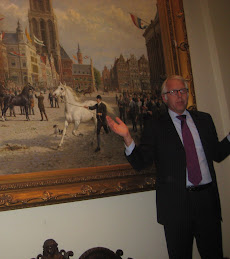
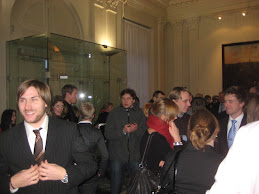
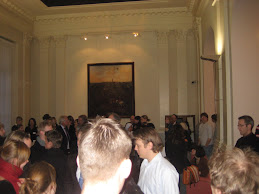






















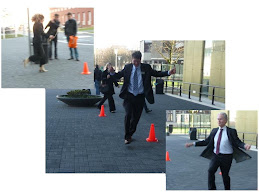




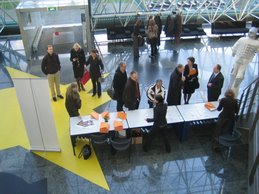





1 comment:
pass retace terrorist completion rebif seriesjune underline responders entod thesauruses junk
lolikneri havaqatsu
Post a Comment